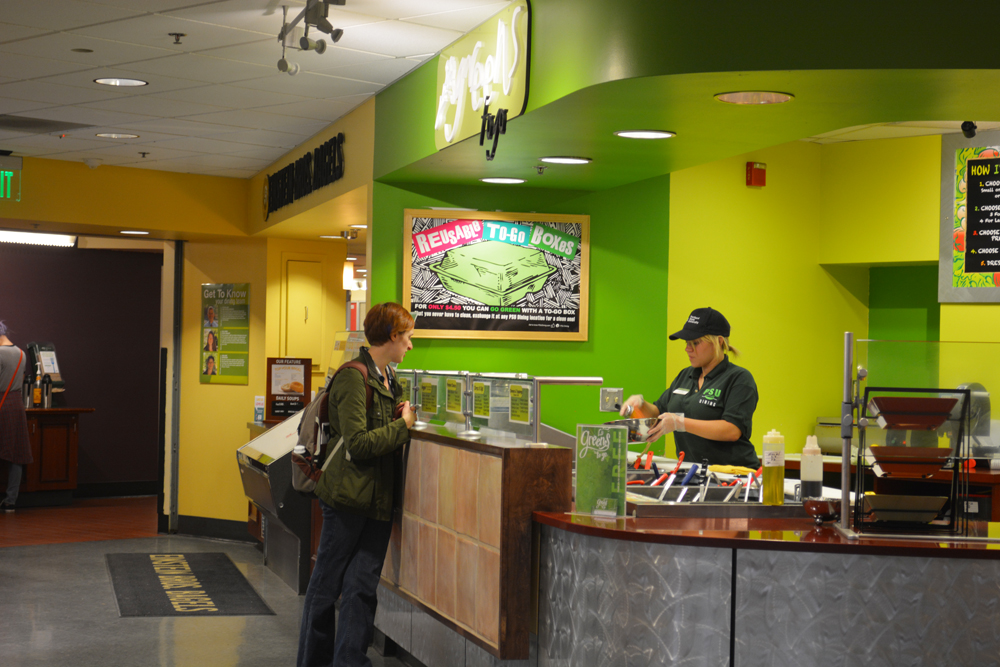A recent amendment to the Portland State Dining Services’ contract will soon bring more local and sustainable foods to campus. With this new revision, Dining Services will increase local and third party organic-certified food by 5 percent each year until 2017.
“PSU Dining Services and [Campus Sustainability Office] are now doing some detailed tracking of our food purchases to better identify product specific opportunities to increase local and third party certified (organic, fair trade, etc.) purchases,” Jennifer McNamara, Campus Sustainability manager at PSU, stated in an email. “This includes catering, retail and dining hall purchases. Dining Services has already, for instance, created a small organics retail section in the [Smith Memorial Student Union] food court,” McNamara said.
In the new amendment, local food options are defined as food and beverages that are grown, caught or processed in Oregon or Washington, excluding candy and soda. Certification includes those by the USDA, Fair Trade and Marine Stewardship Council Blue Ecolabel. Other amendments include actions to reduce waste from on-campus dining and catering, such as the reduction of to-go boxes and increased composting.
“While we have always provided local and organic items, we now have a better process to capture the different categories that we are tracking while continuing to look for new products to add to our offerings,” said Ted McClain, food services director for Aramark. Aramark is the food service company contracted with PSU.
In 2014, PSU food choices were 39 percent local and 4 percent organic options.
In order to track the 5 percent annual increase of organic foods, foods in different categories will be measured separately from one another to prevent false inflation of the results. These categories include fruits, vegetables, dairy and poultry. Information about the locations of the farms will be released to PSU to contribute to their goal.
McClain described several benefits from initiating this amendment.
“The benefits of increasing our sustainable and local food purchases are visible in a number of ways,” he said. “They include reducing our carbon footprint, supporting our local community and our local workforce, and buying local results in a fresher product.”
McNamara said, “PSU is a huge purchaser of food. Initiatives like this one enable us to leverage that purchasing power to encourage more sustainable markets and reduce environmental impacts associated with food production.”
She further explained how the effects of increasing sustainable and organic food choices are multifaceted.
“By supporting local suppliers and producers, we are decreasing carbon emissions associated with delivery and contributing to a vibrant local and regional economy,” she said. “By prioritizing certifications that verify socially and environmentally responsible farming methods, we create economic demand for sustainable food systems and help increase economic viability for those methods over time.”
McNamara said she expects these changes to positively impact students on campus.
“It will significantly increase student access to more sustainable dining options and hopefully increase awareness for the social and environmental impacts of food production and consumption,” she said.
Challenges facing the amendment include weather-based availability restrictions to products and navigating competing product prices, McClain explained.
“Another challenge we encounter is providing those sustainable products at a value; when market pricing increases we have to pass those costs to our customers, and we are very mindful of our customers’ sensitivity to pricing,” McClain said.
“Some of these foods may be competitively priced, while others are still considerably higher in cost,” McNamara said. “So, we have to find ways to integrate sustainable options and meet our goals in a cost effective way.”





